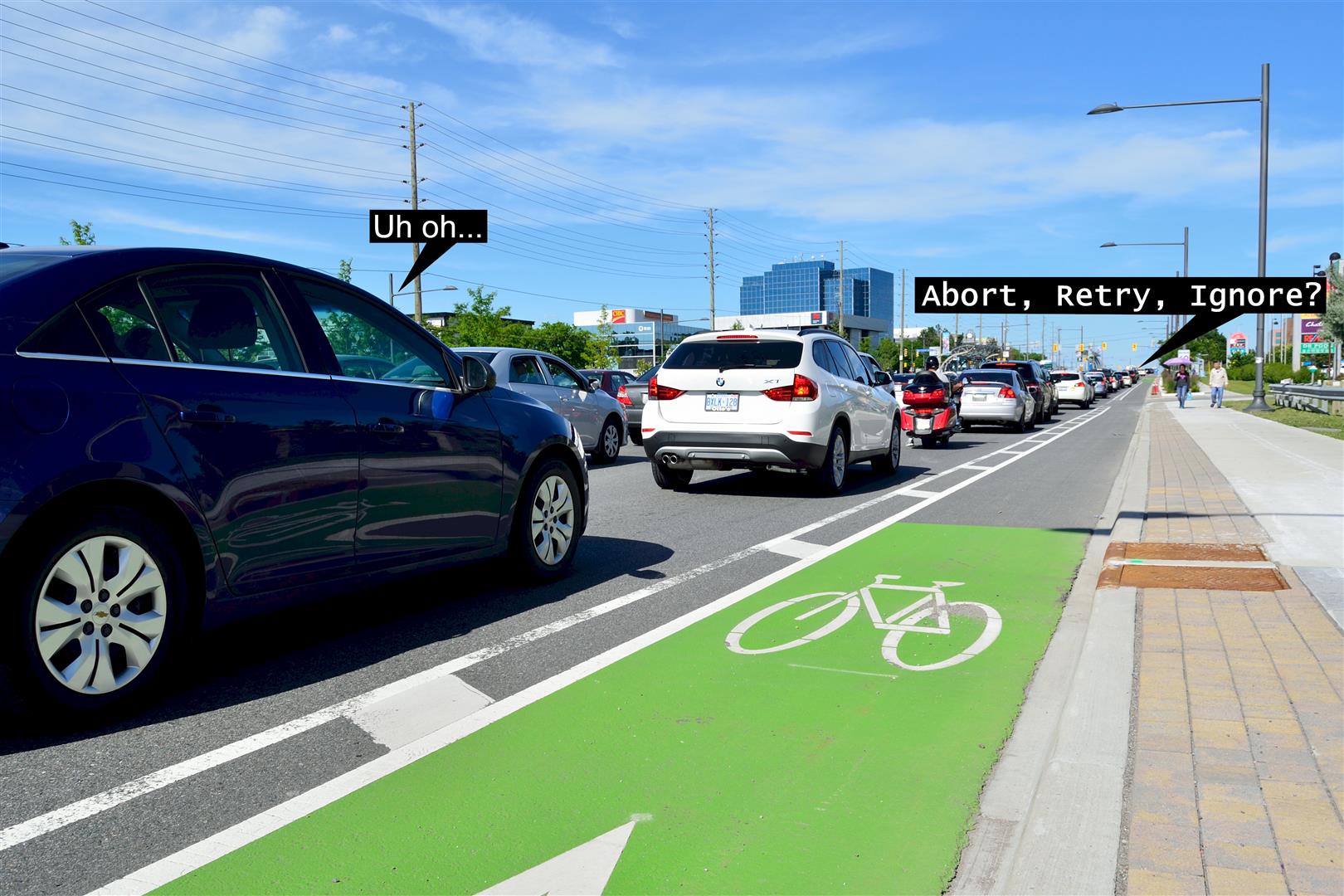
Occam's razor can be interpreted as stating among competing hypotheses, the one with the fewest assumptions should be selected, but it is popularly interpreted as choose the simplest solution. It was postulated by the 14th century Franciscan friar and scholastic philosopher, William of Ockham, and it's why I have a rather jaundiced view of the "internet of things" (IoT) hype that has been filling both the popular and professional engineering press, as well as certain other highly technological approaches that I will come to.
For those that haven't been following this, the "internet of things" is the concept of lots of objects talking to each other via "the cloud" (an aptly vague term in my opinion) to do all sorts of amazing things. People are proposing products such as a fridge that reorders food for you when it predicts this is necessary, based on your eating habits. Issues such as whether you actually want to re-order the twenty punnets of cheap but tasteless tomatoes used for last week's birthday party barbecue are quietly ignored, or it's assumed the barbecue grill will supply the missing information. More technological problems do get a mention, but only with the answer "we need standards". This makes me think of my never-ending scanner saga. I'm currently on my third scanner, not because any of them ever failed, but because with each new PC my scanner has found itself obsoleted, either because the connection standard changed (from parallel port to USB), or because Microsoft changed their operating system such that the driver no longer worked¹ (and of course no new driver would ever be available from the manufacturer). Would you really want to replace your fridge because it uses Fridgeware 1.2, Sainsbury's now require Fridgeware 2.0 or later, and your fridge does not have the required 64 bit fridge processor for Fridgeware 2.0? It's all sounding very much unlike the simplest solution to storing your food safely. And then there's that very vague notion, "the cloud". This is generally taken to be some sort of server on the internet, but what if the service provider decides it no longer wants to supply the service? I'm currently on my fourth cloud storage provider, because the other three decided they could "better serve their customers by doing something else" (to paraphrase what they all said on ending their service). More seriously, Google Nest recently bought Revolv, and killed off the server, leaving people with a collection of expensive electronic junk.
Of course the automotive world wants to join the party, with an "internet of moving things". This adds the extra hurdle of trying to get the internet of things working on rapidly moving platforms that freely pass through radio signal deserts. But assuming you can get a Ford Focus talking with the Bentley up the road that has just entered a tunnel, and one of them at least is able to fill in for that vintage Morris Minor approaching on the slip road, why would anyone want cars to talk to each other? Apparently it will put an end to traffic jams. This seemingly attractive goal is achieved on the assumption that the Bentley up the road is able to tell the Ford Focus to reroute because the Morris has broken down and is now partially blocking the road. But even if that assumption turns out to be valid, it adds another assumption, namely that there is another route for the Ford to take. In a city such as Birmingham, that will typically mean directing it and all the other traffic down what is supposed to be a residential road. Traffic will get directed and redirected until every road is just as full of private cars as many already are. Then what? That's the problem with cars in a city. Just a few extra cars quickly fills up all the remaining space, and we are already close to that limit.
Now you may be thinking I'm just a Luddite, but in fact I'm an engineer and have spent my life designing technological products, some of them for motor vehicles. Many exciting ideas either don't live up to the hype and fall by the wayside, or they get stripped down into their usable, practical elements, which are used to build less fantastical products. What concerns me is the way some people seem to latch on to high-tech promises and ignore or belittle proven simple solutions. Birmingham is throwing vast sums of money at extending an unpopular tram line into the city centre. It might be big, shiny, and technological, but it serves only a small proportion of the area of the city, particularly since the city council is not addressing how people might get from their house to the tram stop. Birmingham is also exploring a high technology system to help motorists find on-street parking bays in the city centre, encouraging people to drive in and fill the city centre with motor cars, even though it will only ever help a relatively very small number of people access city centre businesses and attractions. City councillors need to learn a bit of wisdom from William of Ockham.

A bike is often the best choice of transport in a city
William of Ockham would undoubtedly opt to get on his bike. It requires nothing new to be invented, requires no assumptions about our ability to solve problems, and takes up considerably less space on the road than a car, reducing the opportunity for traffic congestion to occur. Light transport is a mature, affordable technology that is usable by everyone, and it's available now. A bike might seem a disappointingly low-tech solution², but as I have explained, that isn't what's important. There is clever engineering design involved in creating infrastructure that enables everyone to cycle (or use some other form of light transport), but it is proven and not expensive to implement. Yes, creating that infrastructure means private car drivers can no longer do as they please, but the better spatial efficiency of cycling as transport will mean that when people do drive a car, they will find the road is not filled up with everyone else's cars. Countries such as the Netherlands, Denmark, and Germany are decades ahead of us doing this, and have defined good and best practice. And now many other countries are doing the same, adopting the simple solution of discouraging the use of motor vehicles on city centre streets whilst encouraging the use of sustainable personal transport, be it cycles, scooters, skates, Segways, mobility aids, or even just walking. The result is cities that are pleasant places in which to live and work, and increased trade. Birmingham, alas, is hoping for complex technology to come to the rescue, and is as a result making the city centre less and less conducive to cycling. Where other cities are spending their money on cycle stands, filtered permeability, and even cycle paths, Birmingham is spending its money on cycle lanes that end after a few metres with a CYCLISTS DISMOUNT, END OF ROUTE, or CYCLING PROHIBITED signs, trying to discourage people from cycling where they need to in order to make real journeys. Thankfully more and more British people are figuring out for themselves that a bike is the simplest and most versatile way of getting about a city, and in my experience those in Birmingham are simply ignoring all the city council's anti-cycling measures. Will the city council be responding with an anti-cycling robo-cop, or will it finally join in properly with the sustainable transport revolution that is spreading around the globe?
¹ I'm pleased to say that I have managed to resurrect scanner number 3 (which stopped working when I switched to Windows 7), by copying a file from my old Windows XP machine to my Ubuntu 14 machine, and then editing a text file to tell Ubuntu where to find said critical file. I have no idea what the file does or why it works on two completely different operating systems, but I'm thankful for the advice I found on the internet. I wonder how many garages will have the necessary hacking skills to keep cars running as the internet of moving things evolves?
² Cycle components can of course be extremely high technology, and they are often discussed in professional engineering magazines, but most councillors on Birmingham City Council don't cycle, and are likely completely unaware of this.
Image credits:
-
Intel Free Press, CC BY-SA 2.0, via Wikimedia Commons -
Raysonho @ Open Grid Scheduler / Grid Engine, CC0, via Wikimedia Commons


